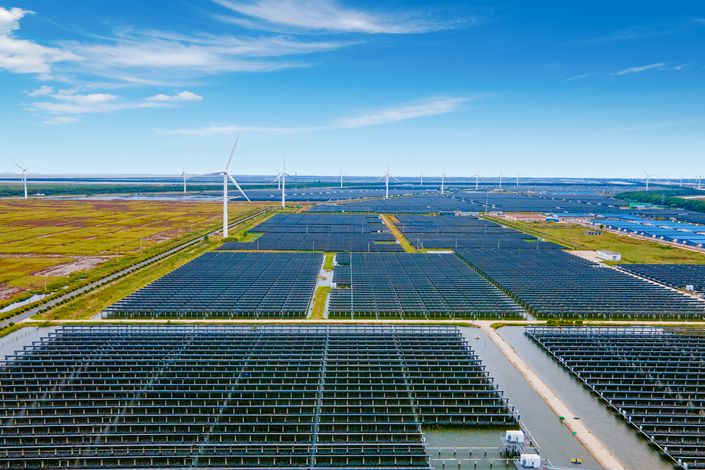China Mulls Greener Investments for Developing World
China is contemplating a significant shift in its foreign development strategy, with a focus on channeling resources towards environmentally friendly initiatives in the Global South. This potential approach, likened to a "Green Marshall Plan" by analysts, echoes the post-World War II program that aided European reconstruction but with a modern twist on sustainability.
The world's developing countries face a tough balancing act. They strive for economic growth to elevate their populations out of poverty, yet they often lack the capital and technological know-how to implement clean energy solutions. This can lead to reliance on traditional, polluting industries like coal-fired power plants.
China, the world's largest emitter of greenhouse gasses, is well aware of this challenge. While it has invested heavily in renewable energy domestically, its overseas development projects have sometimes prioritized speed and affordability over environmental impact. This has drawn criticism from environmental groups who argue that China is essentially exporting its own pollution problem.
There are signs, however, that China is rethinking its approach. In a recent speech, President Xi Jinping pledged to stop funding new coal-fired power plants abroad. This move has been applauded by green advocates, but many are waiting to see if it translates into concrete action.
Proponents of a Green Marshall Plan believe that China has the potential to be a transformative force in the developing world's fight against climate change. China is a leading producer of solar panels, wind turbines, and other green technologies. By providing these technologies at concessional rates and sharing its expertise, China could help developing countries leapfrog over the polluting stage of development and adopt cleaner energy sources from the outset.
However, there are also potential drawbacks to consider. Some experts warn that a China-led green initiative could come with strings attached. Recipient countries might be pressured to accept other aspects of China's foreign policy agenda. Additionally, there are concerns that China might use such a plan to create new markets for its own green technologies, potentially crowding out competition and hindering innovation.
The success of any Green Marshall Plan would likely depend on close collaboration with existing international institutions and recipient countries themselves. Ensuring that projects are transparent, environmentally sound, and aligned with local development goals will be paramount.
China's potential pivot towards greener development assistance is a welcome development for many. If executed thoughtfully, a Green Marshall Plan could be a win-win scenario, helping developing countries achieve sustainable growth while tackling the global climate crisis.
مشاركة:

